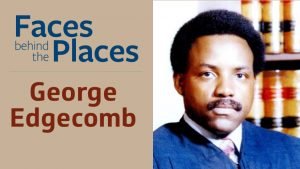Attorney Liens Part 3: What are Retaining Liens and Charging Liens?

 Attorney liens are the ultimate sign of a broken relationship between attorney and client. Part 1 discussed what an attorney lien is and Part 2 highlighted the requirements and limitations of an attorney lien. This final part will discuss the two most favored types of attorney liens: retaining liens and charging liens.
Attorney liens are the ultimate sign of a broken relationship between attorney and client. Part 1 discussed what an attorney lien is and Part 2 highlighted the requirements and limitations of an attorney lien. This final part will discuss the two most favored types of attorney liens: retaining liens and charging liens.
Retaining Liens
In Florida, the case file your attorney builds as he works on your case – containing your attorney’s notes, investigation reports, expert opinion summaries, and other potential evidence vital to your case – is considered to be your attorney’s property. Though you can normally access it and get copies of it (often at your own expense), you generally aren’t entitled to take your file with you when you leave the firm.
If your first attorney withdraws from your case, your new attorney will normally request a copy of the first attorney’s case file since, without it, she would have to complete all the work already accomplished by the first attorney, causing expensive delays that could potentially damage your case. While your original attorney still has an ethical duty to not damage your case, he has a right to be paid according to the terms of the contract as well.
If you and your original attorney cannot work out an arrangement that ensures that he will be paid what you contracted for, he may seek to retain your file as surety for the debt. In essence, a retaining lien is a way for your former attorney to hold your file hostage until he receives payment or an assurance that he will be paid out of the settlement or award received in your case.
A retaining lien is subject to the limitations discussed in Part 2, and is vastly limited in contingency fee arrangements. If your contingency fee contract dictates that your attorney must pay for the costs and expenses of the litigation unless and until your case returns with a settlement or favorable verdict, he cannot retain your file, since he would have no right to payment until the contingency (the lawsuit’s success) occurred. If, however, your contract dictates that you are responsible for part of the litigation expenses regardless of how the case ends, your former attorney may be able to retain your file until your portion of the expenses is paid.
You should also be aware that your attorney may be able to retain funds he is holding for you – though there are strict limitations on what sort of funds he may retain. For example, attorneys may rarely retain any portion of funds held for a specific purpose (such as to guarantee a loan), even if the funds exceed the amount needed for the designated purpose. Again, review your contract carefully to see whether it contains language that allows him to retain your funds to pay his fees and costs, and under what circumstances.
If your former attorney has filed a retaining lien on your case file or funds, your new attorney should be able to advise you on how best to proceed. If your case might be damaged by the retaining lien or if the attorney’s claimed fees and costs are unreasonable, you may be able to defeat the lien.
Charging Liens
Another common type of attorney lien is known as a charging lien, which allows your attorney to claim a portion of the future settlement or judgment in your case.
In order for an attorney to succeed in a lien application, he must be able to demonstrate that his work contributed substantially to your case – so if you feel that his representation and/or subsequent withdrawal actually harmed your case, you may be able to challenge his lien and his right to receive any payment.
For both types of liens, your former attorney’s claim for payment is limited by law to the reasonable value of his services and also by the contract you signed. For example, if your attorney anticipated receiving 33% of your award and you settled the case for $600,000, he cannot claim $200,000 when he only put in ten hours of work before withdrawing. So, too, if your contract limited his fee to $5000, he likely cannot later claim more than that, even if the actual hours he spent on your case at a reasonable billing rate would have exceeded that amount.
For more information on attorney liens, The Florida Bar has put together a Primer on Motions to Withdraw, and the Ethics Committee has provided an Informational Packet on Attorney Liens.
If your former attorney has threatened to file or has actually filed a lien against your judgment or if he is retaining needed information that is essential to the success of your case, Wagner, McLaughlin & Whittemore can help. We have extensive experience dealing with tort litigation and the different liens that may become involved.. Contact us today for a consultation.

In Part 1, we discussed what attorney liens are and when they might be used. This post will talk about the requirements and limitations of  attorney liens.
attorney liens.
Prerequisites
There are several things that must exist before your old attorney can file a lien to recover unpaid costs and fees. First and foremost is a valid contract that contains an understanding that you will pay your attorney. If you never agreed to give money to an attorney, he cannot later demand to be paid, no matter what work he may have done for you.
Next, there must be evidence that you are avoiding paying the attorney’s fees and costs you agreed to pay, as well as evidence that the attorney provided you with a timely notice of the fees and costs he believes you owe him. If you’ve already arranged payment, or if your attorney never even gave you an accounting of what he thinks you owe, a lien would be inappropriate and/or premature.
If those requirements have been met, the attorney can then file a notice of lien, setting forth exactly what he thinks he’s entitled to and his request as to how he’ll receive it.
Lien Limitations
Whether you’ve failed to pay him or not, your attorney is still ethically obligated to avoid prejudicing the interests of your case. This basic rule applies very differently depending on the circumstances, but if the lien might hurt your chances in court, there is a higher likelihood that it will be denied.
Contingency fee agreements – the type of contract most plaintiffs sign in personal injury cases – also bring special limitations. If your contract provides that you will owe your attorney nothing unless he recovers money for you, he cannot try to make you pay him anything unless and until that case is successful. If the case succeeds, however, your original attorney may be able to claim a portion of your award as reasonable attorney fees and to cover his costs.
Acceptable Reasons to Withdraw
Your attorney’s ability to file a lien for his fees and costs may hinge, among other factors, on whether his withdrawal was reasonable. If, for example, he withdrew from your case without giving a reason (or because he decided to become a professional golfer instead), and his withdrawal damaged your case, the court may well support you in your decision not to pay him for the work he did. If, however, his withdrawal was necessary or reasonable and if the court approved the withdrawal, it is likely that he will be able to recover reasonable fees and costs for the work he did, according to the terms of your contract.
There are several reasons to withdraw that are likely to be supported by the court, and Rule 4-1.16 of the Florida Rules of Professional Conduct delineates acceptable reasons for an attorney to withdraw from a case.
Required Withdrawal: A lawyer is required to withdraw if representation violates the law or any of the Rules of Professional Conduct, if he’s physically or mentally incapable of representing the client, or if the client discharges him. He must also withdraw if he believes or knows that the client’s action is criminal or fraudulent, unless the client agrees to disclose and rectify the fraud.
Permissible Withdrawal: Withdrawal is also allowed for many reasons so long as there is no harm done to the client’s interests – so an attorney who wants to withdraw on the eve of trial will likely need to state an extremely good reason for doing so. If the lawyer fundamentally disagrees with the client, if the client refuses to fulfill obligations to the lawyer after being warned that withdrawal will result otherwise, if the case becomes unreasonably burdensome financially, or if the client has made the case unreasonably difficult, withdrawal may also be permitted by the court.
If you feel that your former attorney’s withdrawal was unreasonable or unreasonably harmful to your case, you may be able to challenge his lien on those grounds.
Responsibilities After Withdrawal
When an attorney is discharged and/or allowed to withdraw from a case, he still maintains the duty to protect his former client’s interests through the transition to new counsel, including providing case file information to the new attorney. Though the option of retaining case files as security for unpaid fees is often available, it is limited by law, as will be discussed in Part 3. An attorney must also refund to his client any advance fee that hasn’t been earned.
If your former attorney has filed a lien against you, if you dispute the amount of the fees he claims you owe him, or if you are seeking new counsel for your case, Wagner, McLaughlin & Whittemore is experienced in holding other attorneys accountable for their actions. Contact us today to see how our expertise can help you.

 Work with skilled Tampa attorney lien defense attorneys!
Work with skilled Tampa attorney lien defense attorneys!
When you hire an attorney, you will normally sign a contract laying out the work you expect the attorney to accomplish and the method by which the attorney expects to be paid for his time. Whether you pay a retainer up front or sign a contingency fee agreement assigning a portion of your potential award to your attorney, few clients expect their attorneys to work for free. A typical agreement also spells out who should be responsible for the costs of filing fees, expert witnesses, and other expenses that are a normal part of your type of lawsuit. You may agree to pay some or all of those costs as the case progresses, or your attorney may agree to pay for everything until he obtains a money judgment in your favor. Each case is unique, and there are many different types of attorney contracts – but the language of yours could have a huge impact on your future relationship with your attorney.
Once the agreement is signed, most attorneys will get to work. Over the coming weeks and months, he and his staff will obtain and review reports, interview witnesses, schedule and attend formal depositions, and engage expert witnesses. He will build a case file, negotiate with the other party, and spend time answering your questions. He will prepare for trial, file motions on your behalf, and work toward achieving your objectives.
Only, things don’t always go according to plan.
Whether you become dissatisfied with your attorney’s representation or whether your attorney seeks to withdraw from your case for reasons of his own, you may be left in the position of needing to hire a new attorney to finish your case. When that happens, your original attorney may, in some but not all cases, still be entitled to payment for the time he spent on your case and for the expenses he has covered to investigate your claim. If you cannot or do not pay him according to the terms of your contract – or if you dispute the amount he is requesting – he has a few options to attempt to force payment.
The two favored options for a Florida attorney who wants to recover costs and fees owed him by a former client are retaining liens and charging liens. Retaining liens, basically, allow an attorney to hold your file – and all the evidence he’s collected while working on your case – as surety against your payment. Charging liens allow him to claim a portion of your future judgment in the case, once you receive it.
There are rules governing an attorney’s ability to file each type of lien, and conditions that must exist before a lien can be filed at all. Those rules and conditions will be explored in Part 2, and retaining and charging liens will be explored in Part 3.
Wagner, McLaughlin & Whittemore has the experience to defend our clients against unreasonable attorney liens and to help their cases get back on track. Contact us today for a free consultation.

Honoring the first African-American county judge in Hillsborough County, Florida!
 The Hillsborough County Courthouse bears the name of George Edgecomb, the first African-American county judge in Hillsborough County, Florida. Though he died too young – at the early age of 34 – Judge Edgecomb’s lifetime accomplishments show that he is well worthy of gracing our courthouse.
The Hillsborough County Courthouse bears the name of George Edgecomb, the first African-American county judge in Hillsborough County, Florida. Though he died too young – at the early age of 34 – Judge Edgecomb’s lifetime accomplishments show that he is well worthy of gracing our courthouse.
Born in 1942 in Tampa, Florida, the future Judge Edgecomb was raised by a single mother in government housing. While his childhood circumstances were modest and likely luxury-free, he didn’t let that stop him. Throughout his short but distinguished life, he rose above financial and cultural obstacles in his rise to excellence. He served as student body president at Middleton High School before graduating there with honors. He continued his education at Clark College in Atlanta, Georgia, where he served as student body president during his junior and senior years and received the Young Man of the Year award. Four years later, in 1968, he earned his law degree at Howard University Law School – where he served as Chief Justice of the Sigma Delta Legal Fraternity. While in law school, he worked for a law firm in Washington, D.C.
After law school, at the age of 26, Mr. Edgecomb practiced law in Tampa with respected attorney Delano Stewart. Over the next eight years, he served in his community as President of the Greater Tampa Urban League Board of Directors, a steward at Mt. Sinai A.M.E. Church, Man of the Year of the Omega Psi Phi Fraternity, Inc., and Outstanding Citizen of Frontiers of America.
During his short career, Judge Edgecomb set an example as a dedicated professional and blazed trails as an African-American. He became the first African-American Assistant County Solicitor as well as the first African-American Assistant State Attorney, later becoming Chief of the Felony Division of the state attorney’s office. On August 13, 1973, Governor Reuben Askew appointed Judge Edgecomb as the first African-American county judge for Hillsborough County. He was just 31 years old when he took the bench, and served for just three years before his death in 1976.
Judge Edgecomb is held in honorable remembrance not only as the name on the Hillsborough County Courthouse, but as the inspiration for the George Edgecomb Bar Association, which promotes and recognizes African- Americans within the legal profession and judiciary.
At Wagner, McLaughlin & Whittemore, we honor the memory of George Edgecomb and others like him who remind us how to overcome obstacles, serve with dedication, and strive for excellence in all that we do.

 Work with the Tampa law firm with over 40 years of experience!
Work with the Tampa law firm with over 40 years of experience!
For any given area of law, there are scores of lawyers vying for your business, and it can be extremely difficult to choose the best one. If you’re looking for a personal injury attorney in Tampa, Florida, for example, you might need several days of dedicated time to wade through the list of 100 attorneys offered by a single lawyer referral site.
So, how do you pick the lawyer who’s right for your case? Consider the following criteria:
Attorneys in Florida are not required to be board-certified in order to practice in their chosen area of law – and, in fact, board certification is only granted to approximately seven percent of all Florida attorneys. To become board certified, an attorney must demonstrate expertise in the certification area, pass a peer review and an examination, and take a battery of continuing legal education classes specific to that certification area. Then they must recertify every five years to maintain certification.
Board certification in the area of law most vital to your case is a strong indicator that you can rely on the strength of your attorney’s advice.
Do they have years of experience in that area of practice?
An attorney who started practicing in personal injury last week is unlikely to know as much as an attorney who has been practicing personal injury law for decades. Though all attorneys are trained to interpret the law, there is a world of difference between a seasoned PI attorney and a recent law school graduate. If you want someone to bake a magnificent wedding cake, you’re likely to hire an experienced pastry chef – not your cousin who likes to read dessert cookbooks but who has never actually entered a kitchen.
The more experience an attorney has, the less likely it is that he or she will make rookie mistakes on your case.
Are they leaders in the profession?
The most experienced attorneys are generally sought after by prestigious legal organizations such as the American College of Trial Lawyers, which consistently strives to improve the practice of civil and criminal trial law. ACTL is a by-invitation-only organization whose members are among the top 1% of the local attorney population in any given area. In making your choice among different lawyers, keep in mind that a member of ACTL is likely to be ethical, experienced, and respected by the courts.
Are they respected by their peers?
Within the legal profession, attorneys are regularly paid to argue with one another. We fight against our peers over and over again on factual questions, legal issues, and sometimes even moral grounds. It is especially telling, then, when an attorney has been nominated for an award by the members of his or her local bar association and has been recognized for excellence within the legal profession by those who are often opposed to his or her legal positions. Such a lawyer is often able to more effectively advocate for his or her clients because even other attorneys will be inclined to respect his or her arguments and case-related requests..
If an attorney has been given a peer-based award such as Best Lawyers or Super Lawyers, chances are they will be more able to leverage their legal expertise and reputation to help get you the settlement you deserve.
At Wagner, McLaughlin & Whittemore, we have been practicing personal injury law since 1967, and our firm’s partners are found on the rolls of board-certified attorneys, ACTL, Best Lawyers, and Super Lawyers, among many other legal honor organizations. If you have been injured in an accident or through the negligence of a doctor or lawyer, we would be pleased if your search for a lawyer led you to us. We would fight hard and tirelessly on your behalf. Contact us today for a free consultation.

 Work with experienced Tampa lawyers who embrace new technologies!
Work with experienced Tampa lawyers who embrace new technologies!
Our country is founded on laws. Thousands of laws help citizens get along with one another, resolve their conflicts, and promote a national system of justice. These thousands of laws – written and passed by state and federal legislators – are then interpreted in yet even more thousands of opinions by judges. Judicial opinions comprise what is known as case law. While legislators craft basic laws intended to reach everyone, judges help us understand how to apply a certain law to a specific set of facts, particularly when disputes arise.
For example, we are all guaranteed “due process” of law, but the U.S. Constitution doesn’t spell out exactly what due process entails. To understand due process completely, one must read through hundreds of opinions on individual cases to see how that constitutional protection has been interpreted and applied. To predict how a judge might decide questions of due process in a current case, one must understand, among many other issues,the difference between precedent that is controlling and precedent that is merely persuasive.
If that all sounds confusing, you might start to understand what lawyers do for three years in law school and beyond. Even after law school, most lawyers spend years strengthening their legal research muscles by pouring through constitutional provisions, statutes, and case law and learning how to apply that body of precedent to the individual cases they face in their chosen practice area.
Now, several companies are trying to make that legal research easier.
A recent report in The Globe and Mail – a Canadian newspaper – describes a computer program named Ross that was built on the IBM Watson platform. (Watson is famous for winning Jeopardy in 2011.) Ross started as a class project at the University of Toronto as part of an IBM-sponsored contest among ten different schools, all using the Watson program. Ross’s main function is to respond to legal questions by researching through the thousands of laws and court decisions and producing a possible answer that would apply that knowledge to a current case. Though it is focused largely on federal bankruptcy law at present, Ross has already been hired at Dentons – the largest law firm in the world – and at some U.S. law firms, where it is currently going through pilot program testing.
If Ross or one of his competitorsproves successful, it could revolutionize legal research – which can be one of the most time-consuming parts of a law practice – and speed up every part of a lawyer’s workload that relies on research. Legal writing, counseling with clients, and negotiations could take less time, opening up more time for each attorney to take on new clients.
While such advanced computer programs will neverreplace attorneys, at the Tampa, Florida law firm of Wagner, McLaughlin & Whittemore, we celebrate any technology that helps us work smarter for our clients. Along with legal research – whether computer-assisted or not –we will always draw from our own vast knowledge of personal injury, malpractice, and whistleblower case law to serve our clients. Contact us today to see how our knowledge can help you.

Why Wagner, McLaughlin & Whittemore Attorneys are Like Paul Newman & Tom Cruise
The ABA Journal recently published an issue covering “100 Years of Law at the Movies,” exploring Why Hollywood Loves Lawyers. It concluded that “[t]he literature of law values t he object lesson over the cheap thrill. Audiences crave universal truths, and by the time the closing credits roll, movies about the law have left behind wisdom to live by.” We agree with that sentiment. Whether it’s Henry Fonda corralling his fellow jurors in 12 Angry Men, or Tom Cruise cornering “you want me on that wall” Jack Nicholson in A Few Good Men, lawyer movies can and usually do pack a mighty moral wallop. It’s no surprise that Atticus Finch found himself at the top of an American Film Institute list of famous heroes of the last 100 years. As the Institute rightly notes, “Heroism that acquits the falsely accused will hold its own against any nonstop action flick.”
he object lesson over the cheap thrill. Audiences crave universal truths, and by the time the closing credits roll, movies about the law have left behind wisdom to live by.” We agree with that sentiment. Whether it’s Henry Fonda corralling his fellow jurors in 12 Angry Men, or Tom Cruise cornering “you want me on that wall” Jack Nicholson in A Few Good Men, lawyer movies can and usually do pack a mighty moral wallop. It’s no surprise that Atticus Finch found himself at the top of an American Film Institute list of famous heroes of the last 100 years. As the Institute rightly notes, “Heroism that acquits the falsely accused will hold its own against any nonstop action flick.”
We don’t practice criminal law at Wagner, McLaughlin & Whittemore, but we feel that our quest for justice is no less rigorous and duty bound than that of Mr. Finch in To Kill a Mockingbird or of Matthew McConaughey in the gripping tale A Time to Kill. We, too, strive daily to see that wrongs are righted. Fortunately, Hollywood agrees that civil practice can be just as compelling – and just as filled with white-hat lawyers making society better and more just, one client at a time.
Below is a short list of some of the great lawyer movies dealing with civil lawyers and our fight to improve the lives of our clients. We not only love these movies; we are proud of these civil justice-fighters, real and fictional.
Erin Brokovitch: “Not personal? That is my work! My sweat! My time away from my kids! If that’s not personal, I don’t know what is.”
Who doesn’t know of Erin’s true-life story fighting against a massive power company to get justice for hundreds of residents injured by contaminated water? What began as a personal quest for employment culminated in a life-changing verdict for the townspeople poisoned by Pacific Gas & Electric’s dangerous disposal practices. Though she wasn’t a lawyer herself, she and attorney Ed Masry certainly earned their badges as civil law heroes.
A Civil Action: “Now the single greatest liability a lawyer can have is pride. Pride… Pride has lost more cases than lousy evidence, idiot witnesses and a hanging judge all put together. There is absolutely no place in a courtroom for pride.”
Like Erin Brokovitch, A Civil Action is based on a true story of a lawyer who took on a large company responsible for damaging the health of the nearby townsfolk, this time causing terminal leukemia in several children. The story is a wonderful portrayal of a team of attorneys who quite literally risk everything to win justice against all odds.
The Insider: “You are important to a lot of people, Jeffrey. You think about that, and you think about them. I’m all out of heroes, man. Guys like you are in short supply.”
Big Tobacco went to war when a single courageous whistleblower, Dr. Jeffrey Wigand (played by Russell Crowe), agreed to a 60 Minutes interview to expose the dangers of smoking. The Insider tells the tale of the legal battle that followed as Big Tobacco pulled out all the stops to suppress the interview.
Rainmaker: “Every lawyer, at least once in every case, feels himself crossing a line that he doesn’t really mean to cross… it just happens… And if you cross it enough times it disappears forever. And then you’re nothin’ but another lawyer joke. Just another shark in the dirty water.”
A fictional story steeped in legal ethics, Rainmaker tells the tale of a medical malpractice case against an unscrupulous insurance giant. Not every medical malpractice case we take rises to the level of a Hollywood blockbuster – but we never forget that every single case we accept is of enormous importance to the health and life of that individual client.
The Verdict: “I came here to take your money. I brought snapshots to show you so I could get your money. I can’t do it; I can’t take it. ‘Cause if I take the money I’m lost. I’ll just be a… rich ambulance chaser. I can’t do it. I can’t take it.”
Another medical malpractice story starring the fabulous Paul Newman, The Verdict features a once-ostracized lawyer who resists enormous personal and industry pressure to accept a large settlement for his client – because he believes, when no one else does, that his client deserves even more than that. This great movie dramatically illustrates why real-life potential clients should not be unduly “wowed” when lawyers advertise their “big-dollar” settlements – because you never know if that settlement, though large, was really as fair for the client as it was for the lawyer.
At Wagner, McLaughlin & Whittemore, we work hard every day to emulate the commitment and heroism of the lawyers – real life and fictional – who stand up for the rights of their clients despite the strength of the opposition and against the pressure to settle too early, when doing so is not in our clients’ best interests. If you live near Tampa, Florida, and need a personal injury, medical malpractice, whistleblower, or wrongful termination attorney, contact us today for a free consultation. We may not have Paul Newman’s blue eyes or Tom Cruise’s boyish good looks – but we guarantee that our attorneys will work on your case with the same passion for justice that you see in their movies.
(Movie quotes from IMDb)

Contingency fees are used in many personal injury cases as a substitute for up-front retainer fees or pay-by-the-hour fee arrangements. Under the typical contingency-fee contract, you pay no money up front. Instead, your attorney collects a fee through a percentage of the amount rewarded to you in the case. If you lose the case or do not receive an award by way of  settlement or trial judgment, then your attorney does not get paid a fee.
settlement or trial judgment, then your attorney does not get paid a fee.
In 1986, the Florida Supreme Court approved a Statement of Clients’ Rights to help plaintiffs in contingency-fee cases fully understand their rights and their attorneys’ obligations. This statement must be read and signed by clients and attorneys in most contingency fee cases, and it is a source of valuable information for any plaintiff seeking an attorney. Here, in short-hand, are some of the most pertinent provisions:
The Contract
You have the right to bargain with your attorney – and with other attorneys – until you are satisfied with the attorney’s fee. You may also question each attorney about their experience handling cases similar to yours and any special training or knowledge they have. Your lawyer must tell you about any other attorneys that might be involved in your case before signing the contract. You can cancel within three days of signing the contract for any reason and pay only the actual costs your attorney accrued during that time. If you cancel after that period, you may be required to pay a fee for the work your lawyer completed.
Money Matters
You should know in advance how fees will be handled. Discuss whether your lawyer’s percentage comes out of the gross reward or after costs are paid. If you lose the case, you should know whether you will be responsible for any portion of your own attorney’s costs or the fees, costs, and expenses of the other side. If you may be responsible for any costs, you have the right to a regular accounting of how your pre-paid money is spent or how much your attorney is spending on your case. You should receive a closing statement at the end of the case covering all expenses, the amount recovered, and the lawyer’s fee. You must approve this statement before any of your reward is disbursed.
Information and Decisions
Your attorney must respond to your reasonable questions about the progress of the case to the best of his or her ability. He must communicate any and all offers to you and let you make the final decision whether or not to accept the offer(s) and settle the case.
At Wagner, McLaughlin & Whittemore, we want our clients to feel confident that their case is in the right hands. To that end, we ensure that our clients understand their rights, and we are happy to answer any questions you have. If you have been injured in an accident, contact us today for a free consultation.

Let the Tampa litigation attorneys help you understand your privacy rights!
Like most Americans, you probably share a large portion of your life online. You take a trip to the lake and snap a few pictures of yourself soaking up the sun, splashing in the water, and maybe  drinking a few beers…then post those pictures for your select group of “Facebook Friends.” You’ve been careful to set high privacy settings on your account so that current or future employers can’t see you making a fool of yourself, but you want to share your crazy life with the people who matter most.
drinking a few beers…then post those pictures for your select group of “Facebook Friends.” You’ve been careful to set high privacy settings on your account so that current or future employers can’t see you making a fool of yourself, but you want to share your crazy life with the people who matter most.
Beware: those people could include opposing counsel and, possibly, members of a future jury.
This last January, Florida’s Fourth District Court of Appeal made that clear. In Nucci v. Target Corporation, 2015 WL 71726 (4th DCA 2015),the Court upheld the trial court’s order requiring the plaintiff in a slip and fall case to turn over photographs that she had posted on her social media accounts. Specifically, the plaintiff had to turn over to the defendant Target all photographs posted on her accounts from two years before her fall through the present.
Though the Court considered plaintiff Nucci’s argument that her Facebook posts were on a high privacy setting, it ultimately rejected her reasoning, explaining that the “relevance of the photographs overwhelms Nucci’s minimal privacy interest in them.” Indeed, the opinion cited to earlier cases that allowed discovery of personal social networking information and concluded that, generally, “the photographs posted on a social networking site are neither privileged nor protected by any right of privacy, regardless of any privacy settings that the user may have established.”
There are, fortunately, some limitations. As with all other discovery requests, opposing counsel still must show that the social-media postings and photos being sought are relevant to the case. Not everything in your social media accounts can be snagged. .
In the Nucci case, the Court ruled that three-plus years of personal photographs were relevant because the plaintiff was claiming that her slip and fall had caused permanent injuries and had drastically changed her lifestyle. Target had obtained surveillance video of Nucci carrying heavy jugs and bags, so the Court was satisfied that her photographic self-history was a relevant source of evidence about how she’d lived her life both before and after the incident.
If you are concerned that your social media posts could be damaging in litigation, it is best to consult with an experienced attorney. At Wagner, McLaughlin & Whittemore, we can help you understand all aspects of your rights to privacy – and the limitations on those rights if and when a lawsuit proves necessary. Contact us today for a free consultation.

 Consult an experienced Tampa personal injury attorney TODAY!
Consult an experienced Tampa personal injury attorney TODAY!
Imagine that you are walking by a construction site when you hear a loud noise. You turn around in time to see a large piece of equipment hurtling toward you, out of control. You are struck and injured, requiring hospitalization. Even after you are able to return to work, you have lingering pain in your knee and elbow, and your doctor says that this pain might never go away. When you’re able to get to sleep at night, you are plagued by nightmares. You can’t quite bring yourself to walk by another construction site. You used to run every morning, but the pain is too much now.
The construction company doesn’t dispute that it is responsible for your injuries, and it is willing to compensate you for your hospital bills and your time off work… but is that all you’re entitled to?
Damages that result from an injury can be tangible or intangible. Tangible damages are normally economic: Your medical bills, time lost from work, medications, and other monetary losses fall easily into this category. Tangible damages are relatively simple to prove, because there is normally a bill, a paystub, or a receipt you can produce to show how much you should be paid.
Intangible damages are harder to prove for a number of reasons, including because you may not know yourself the full toll they will eventually take on you. Your pain and suffering looms large in your life each day, but how much do they cost you? If you have returned to work, your economic damages might be as good as resolved, but it’s hard to say or feel that you have been made whole.
Florida law recognizes the burden that pain and suffering can bring after an injury, and it allows monetary awards to compensate you. Because it is more difficult to prove pain and suffering, however, be sure that you collect and preserve the following evidence from the outset of your case:
- Keep a log of your daily pain.
- Record any prescriptions for pain medications, along with how often you took them and how much over-the-counter medication you used.
- Make a list of the activities you enjoyed before your accident that are difficult to enjoy after the accident.
The best thing you can do after an accident is to consult an experienced attorney as quickly as possible. Your attorney will be able to guide you throughout the process and can work to ensure that you receive full compensation for all of your tangible and intangible damages.
At Wagner, McLaughlin & Whittemore, we have been representing accident victims for years, and we would be honored to assist you with your case. Contact us today for a free consultation.

